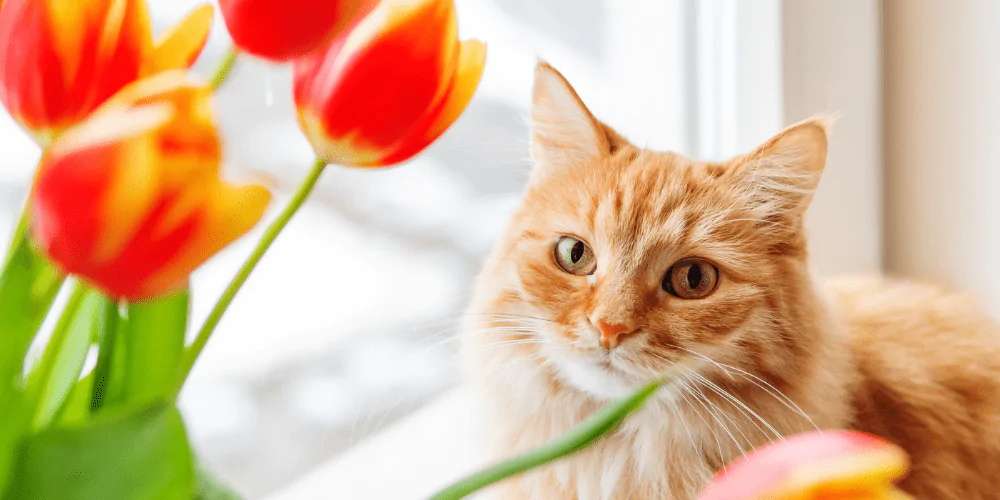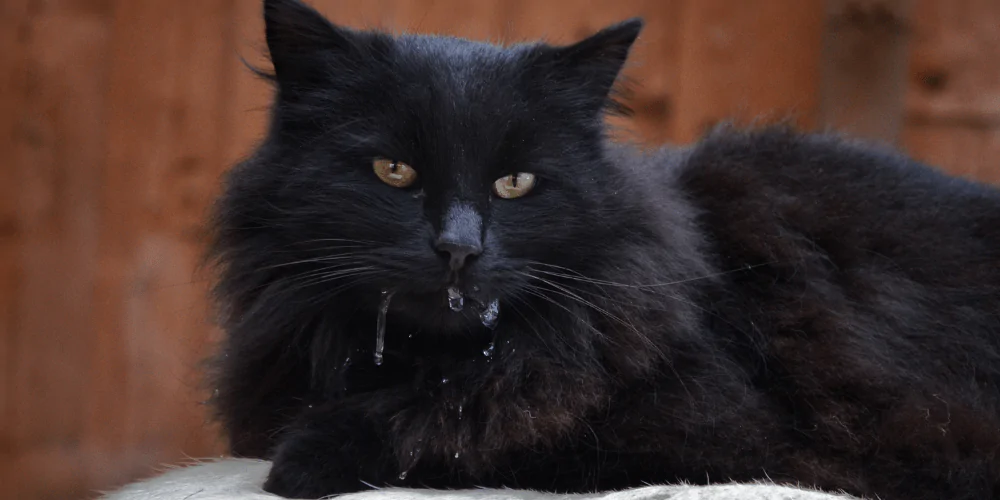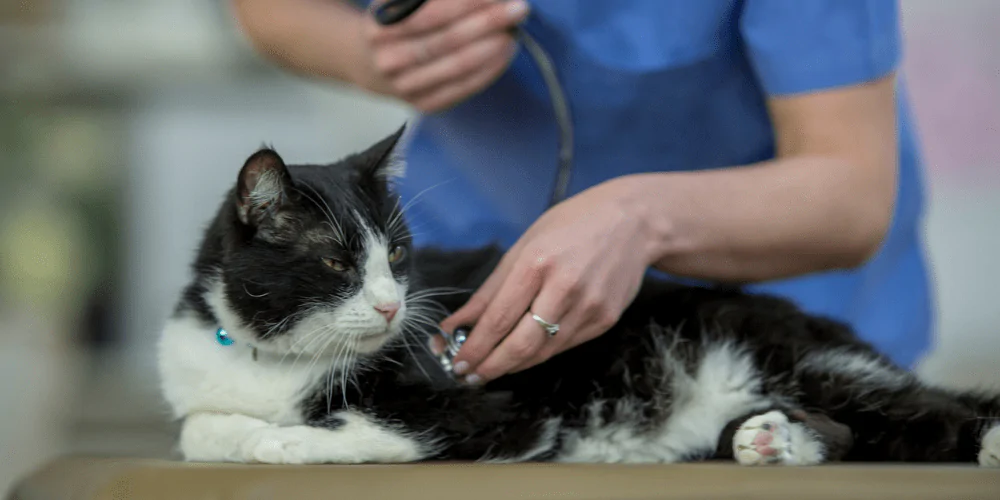
How to recognise and prevent cat poisoning

Dr Scott Miller
8 April 2024 | 5 minutes read
Cats have an uncanny ability to get themselves into all sorts of mischief. And when you have a bold adventurer in your home, it’s easy for your cat to get hold of toxic things.
Poisoning is one of the most common conditions claimed through cat insurance.
Below, Dr Scott Miller goes through some of the poisonous plants and items in and around your home. Find out how to spot the signs of poisoning and what to do if you think your feline has eaten something toxic.
- What plants and flowers are poisonous to cats?
- Household items that are toxic to cats
- Cat poisoning symptoms
- How is cat poisoning treated?
> How long does it take for a cat to recover from poisoning? - How to prevent cat poisoning

What plants and flowers are poisonous to cats?
Some of the most beautiful greenery in and outside of the house can be dangerous for your cats.
This includes (but isn’t limited to):
- Lilies – all parts of the lily plant are highly toxic to cats, including the pollen. Ingestion can lead to kidney damage and can be fatal.
- Daffodils – these can cause vomiting, diarrhoea, abdominal pain, convulsions, and serious cardiac problems.
- Tulips – the bulb has toxins that can cause intense gastrointestinal irritation, drooling, and loss of appetite. It can also affect the central nervous system and lead to convulsions and cardiac abnormalities.
- Carnations – they can cause vomiting and diarrhoea and sometimes lead to mild dermatitis.
- Chrysanthemums – also known as ‘mums’, these can cause vomiting, diarrhoea, hypersalivation, incoordination, and dermatitis.
- Peonies – these can cause vomiting, diarrhoea, and lethargy.
- Aloe vera – this plant can lead to vomiting, diarrhoea, lethargy, and tremors.
- Foxgloves – these can affect the heart.
Interestingly, the following popular plants and flowers aren’t known to be toxic to cats. But it’s never completely safe, so be careful they aren’t chewed or swallowed:
- Orchids
- Roses – the spikes can cause pain and injury if chewed
- Primroses – can cause gastrointestinal upset

Household items that are toxic to cats
Some common items lying around the house can also be very dangerous for your feline.
As we know, cats are fantastic climbers, so simply putting things out of reach won’t work – you’ll need to properly secure them away.
Foods that are toxic for cats include:
- Chocolate – this leads to vomiting, diarrhoea, rapid breathing, increased heart rate, and seizures.
- Onions and garlic – all members of the onion family can cause problems in certain amounts. They cause gastrointestinal upset and could even lead to anaemia.
- Grapes and raisins – even small amounts can cause kidney failure.
If you want to give your feline a tasty treat, check out this list of cat-safe human foods.
Elsewhere in and around the home, be careful of:
- Human medication – including paracetamol and ibuprofen which can cause gastrointestinal upset, severe organ damage, and even death.
- Cleaning products – many contain harmful chemicals including bleach, ammonia, chlorine, phenols, and alcohol. These can lead to mild gastrointestinal upset, severe chemical burns, or even inhalation injuries.
- Antifreeze – symptoms can appear too late for treatment and can result in kidney failure.
- Essential oils and diffusers – some diffused oils like peppermint, citrus, and tea tree can cause liver damage and neurological symptoms.

Cat poisoning symptoms
As we’ve seen, different toxic items can make your cat poorly in different ways. When it comes to general signs of poisoning, look out for:
- Vomiting
- Diarrhoea
- Excessive drooling
- Loss of coordination
- Seizures
- Changes in breathing
Take your cat straight to the vet if you notice any of these symptoms. Speed is of the essence when it comes to poisoning.

How is cat poisoning treated?
To help your vet with diagnosing, try and let them know:
- What you think your cat may have eaten
- How much they ate
- How long ago it happened
Depending on the type of poison and severity, your vet may:
- Run tests such as blood work and urine analysis
- Make your cat vomit to prevent further poison from getting into their bloodstream
- Given them fluids to keep them hydrated and flush out toxins
- Use oxygen therapy and bring their temperature down
- Give them a specific antidote if they know the poison
> How long does it take for a cat to recover from poisoning?
Getting your cat immediate treatment increases the chances of complete recovery. Depending on what they’ve eaten, it can take anything from a few hours to days or weeks for them to get better.
You may need to keep taking care of your cat once they’ve been discharged from the vet. But don’t worry, your vet will give you at-home care instructions, including how to give your feline medicine.


